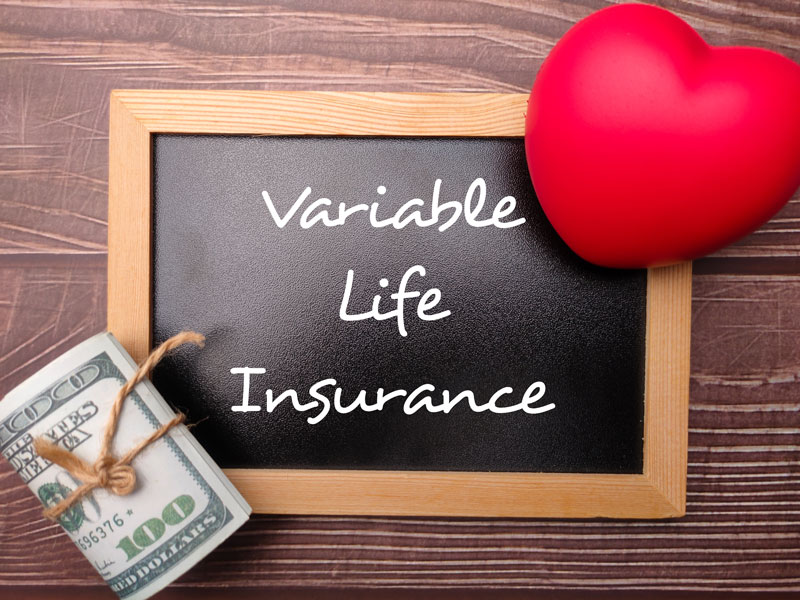Frequently Asked Questions


What is the difference between term and Permanent life insurance policies?
Understanding the difference between term, whole life, and universal life insurance is essential in order to get the best policy for your needs.
Permanent life insurance
Permanent life insurance, as its name suggests, is permanent until the end of life. These policies are more expensive than term insurance because the life insurance company is expected to pay the death benefit on a permanent policy.
Both Universal and Whole Life insurance fall under the “Permanent” Life Insurance category. Think of these type of plans as having a tax deferred “cash value” portion and an “insurance” portion.
There are some key differences between the two options, but both do offer death benefits and allow you to borrow against the cash value of the policy (if available). Keep in mind this also makes the premiums for this type of insurance more expensive.
Term life insurance
Term life insurance is typically available for a given number of years (or term). This is usually 10, 15, 20, 25, or 30 years. If you pass away during this period, your designated beneficiaries get financial benefits. At the end of the term, the life insurance terminates. Some term policies may have a conversion privilege allowing you to convert to permanent insurance without any proof of your medical condition. Term insurance should be used for life insurance needs that do not exist for the whole of your life. For example, the most important reason anyone should buy life insurance is to take care of their dependent children if they die. This particular need for life insurance is not a lifetime insurance need. Eventually children grow up and become financially independent. No one needs permanent life insurance to address this need. The other reason why people get term insurance is to pay off a large debt such as a home mortgage. After 20-30 years the mortgage is paid down or paid off so there is no longer a need for life insurance to pay off the debt once the debt is gone.

One of the features being promoted is that there are tax benefits of over funding your insurance cash value, and then at retirement you can withdraw cash value or take tax free loans as retirement income.
The IRS has strict guidelines on over funding cash values and if too much is inadvertently added to the policy it can become a modified endowment contract (MEC) and the IRS can then tax the cash value. That is why it is important to check with your insurance agent or insurance company before you make large lump sum deposits in to a life insurance policy.
Universal life insurance
Universal life insurance is sometimes referred to as adjustable life insurance because of the flexibility it offers. You have the ability to make changes to your death benefit or your premiums within the limits of the policy which may require proof of good health if you increase your coverage. The interest rate also adjusts depending on the type of cash value account you choose. You have the potential for higher growth in your cash value, which helps reduce the net cost of insurance. For this reason, universal life typically costs less than whole life insurance. As you get older the internal costs for insurance increase, but the interest you earn from the cash value helps to offset the costs.
Another recent feature is the introduction of living benefits that can pay a portion of the death benefit PRIOR to death in the event of a terminal illness, or critical or chronic illness based on the severity of the illness. The more serious the severity the higher living benefit can be paid. The living benefit is not mandatory but is an available option should the insured qualify to take a portion of their death benefit in advance.
Taking the living benefit may reduce some or all of the death benefit, and the amount of the living benefit may be less than the total death benefit amount.
So a terminal, critical or chronic illness may create a financial hardship so some insurance companies are now automatically including these living benefits as an available option available upon request.

What are the main advantages of taking Whole Life Insurance?
Whole Life Insurance has inflexible fixed monthly premiums. This means you pay the same premium each and every year.
These types of policies are typically promoted as guaranteed for your whole life. For a higher premium, you can have a whole life policy paid up in advance, and these have names such as 20 Pay Life, of Whole Life Paid up at age 65. Mortality and expense charges are contractually guaranteed to never change. Whole Life has a set amount of cash value that accumulates and you can use the cash value to borrow against but you must pay a loan interest rate to use it. You can also have an automatic premium loan provision to prevent the policy from lapsing. Mutual life insurance companies declare dividends to its policyholders because they do not have shareholders.
These dividends may be small in the beginning but can become larger as the years go by. For example, they can accumulate as cash, or be used to purchase more insurance called paid up additions.
What are the main advantages of taking Universal Life Insurance?
Whole Life Insurance has inflexible fixed monthly premiums. This means you pay the same premium each and every year.
This types of policies are typically promoted as guaranteed for your whole life. For a higher premium you can have a whole life policy paid up in advance, and these have names such as 20 Pay Life, of Whole Life Paid up at age 65. Mortality and expense charges are contractually guaranteed to never change. Whole Life has a set amount of cash value that accumulates and you can use the cash value to borrow against but you must pay a loan interest rate to use it. You can also have an automatic premium loan provision to prevent the policy from lapsing.
Mutual life insurance companies declare dividends to its policyholders because they do not have shareholders. These dividends may be small in the beginning but can become larger as the years go by. For example, they can accumulate as cash, or be used to purchase more insurance called paid up additions.
What are the main advantages of taking Term Life Insurance?
Term life insurance is the most affordable type of life insurance. It is a good start if you want to get life insurance and know your family will not be left with a financial burden should you pass away. Some life insurance policies come with riders (or extra benefits), such as the possibility to add accidental death insurance too. The biggest advantage of this insurance is that its price remains stable throughout its term. Term insurance does not have any cash value so the premiums can remain low to pay for a death benefit only. Some term policies now have living benefits to pay a portion of the death benefit PRIOR to death in the event of a terminal, critical or chronic illness.
How long of a term should I purchase?
Many people take their good health for granted. Younger people often find it easy to qualify for preferred health discounts, but as you grow older changes in your health can risk your preferred health status. When you purchase a longer level period policy with a preferred health discount, such as a 30-year term policy, your premium does not change during the 30 years. If you put on weight during the 30-year level term period your premiums will remain unchanged. But if you purchase a cheaper 10-year policy, with the idea of buying another 10-year policy at the end of 10 years, you will pay a higher premium based on your older age, and all health factors including your weight will be reexamined. An adverse change could dramatically affect what you pay for a new policy. Things that you may think are relatively minor can lead to higher premiums for new policies. *We recommend NOT to select a shorter level term period, planning to buy a new policy at a later time.
What does Surrendering my policy mean?
Surrendering your policy means to cancel your policy, receiving its surrender value. In some cases, if you withdrawal funds early, to get the cash value you may be subjected to surrender fees. Please be aware of these surrender fees, especially in the early years of your policy. We recommend you try and avoid these penalties. Please consider this a long-term investment and know that you will need to pay premiums over many years.
